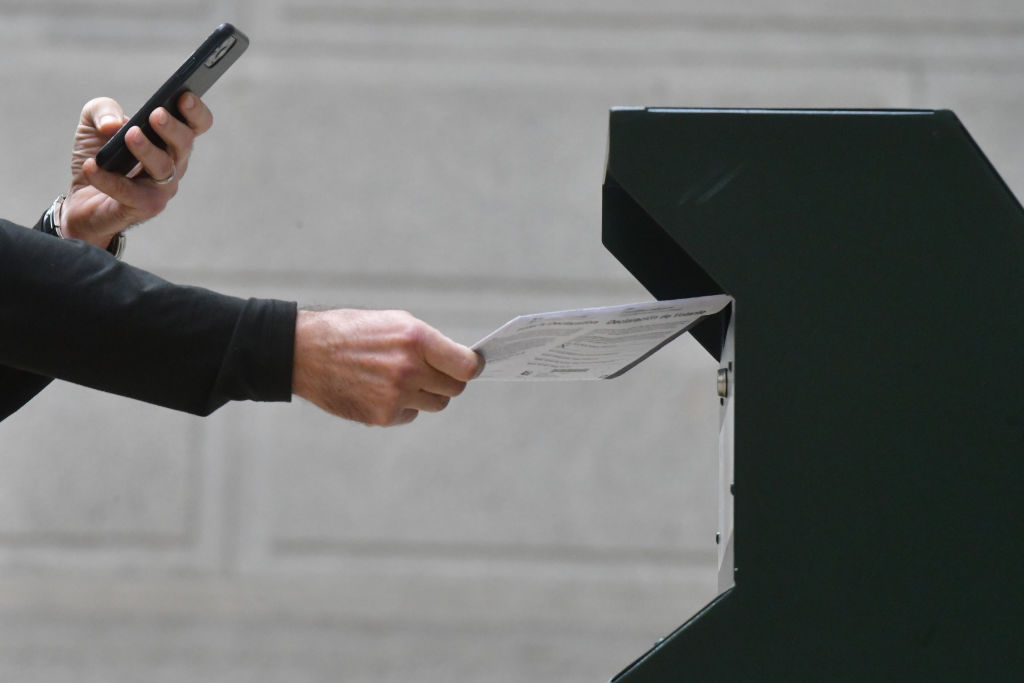Well over a year since President Joe Biden was declared the winner of the 2020 election, plenty of questions still remain in the minds of many. Two states are moving to answer some of those questions as soon as possible.
The Washington Times reported Tuesday that officials in Georgia and Wisconsin are moving forward with probes into alleged malpractice regarding ballots in the 2020 election.
In Georgia, officials are investigating accusations of ballot harvesting. The practice involves a third party collecting a voter’s ballot and submitting it, most often via a drop box.
Georgia law states that ballots can be submitted only by a voter or a close relative. However, at least one anonymous witness said he was paid $10 per ballot to collect and deposit them to various drop boxes.
Election officials have authorized a subpoena in an attempt to speak with the witness, the Times reported. If the allegations are true, this would represent a clear violation of Georgia law.
“On day one at the Secretary of State’s office, I fought to outlaw ballot harvesting in Georgia and continue to advocate for a national prohibition,” Georgia Secretary of State Brad Raffensperger said, according to the outlet.
“I am determined to investigate any evidence that it may have occurred. Our investigation will be thorough and follow every lead until anyone guilty of ballot harvesting is justly punished,” he said.
Unlike Georgia, Wisconsin does not prohibit ballot harvesting. It is one of 13 states that does not specify who must deliver a person’s ballot.
With that said, officials are investigating allegations that people were paid to stuff drop boxes during the 2020 election, which would violate the law.
In addition, Republicans have heard alleged cases of “voter coercion in nursing homes and outright bribery by private groups seeking to drive up Democratic voter registration,” the Times reported.
Catherine Engelbrecht, the founder of the conservative election integrity group True the Vote, was scheduled to testify Thursday morning in front of the Wisconsin Assembly Committee on Campaigns and Elections.
Engelbrecht told the Times that data showed evidence of 100 ballot “traffickers” visiting at least 10 drop boxes leading up to Election Day.
“We just let the data tell the tale,” she said. “Ultimately, are these crimes we are looking at? What we can clearly see from the pattern is there is an abuse of drop boxes that suggest you should not have drop boxes.”
To be clear, the presence of drop boxes does not inherently imply election fraud. What it does, however, is make questionable and sometimes illegal practices such as ballot harvesting and stuffing much easier to engage in.
There is no reason to open up elections to potential fraud in this way. Americans have plenty of options to vote, the simplest and most secure of which is to go to a physical polling place and cast the vote in person.
While it might be more convenient to simply drop a ballot into a box, the risk is not worth the minor reward. Contrary to leftist arguments, eliminating drop boxes would not disenfranchise anyone because Americans still have a variety of options, including absentee and in-person voting.
At this point, it is rather clear the results of the 2020 election are not going to be overturned, and Engelbrecht said her goal is not to force Biden out of office.
Instead, these investigations are important because learning from the mistakes of 2020 is vital to securing elections in the future. Americans ought to be able to trust that our elections are fair and secure, and investigating any allegations that threaten that security is paramount to this assurance.
This article appeared originally on The Western Journal.

























 Continue with Google
Continue with Google